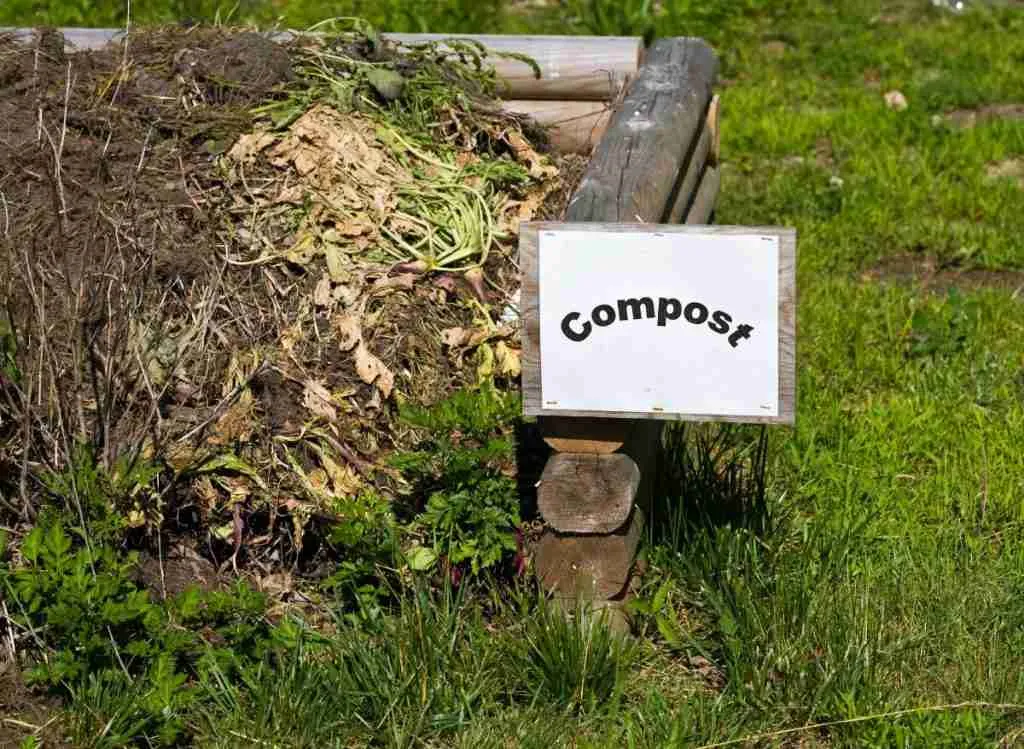
Bread is a staple food that we all enjoy. And since it is easy to prepare, it means that it also can go bad very quickly. And most people tend to throw bread leftovers away as they do with any other food waste. Some consider composting bread, but others will advise against it. So, can you compost bread?
Bread can be composted, according to the North Carolina State University Extension. Like many other kitchen wastes, bread can be composted. In addition, bread decomposes very fast and adds a natural nitrogen source to the compost to enrich your soil.
But, food scraps, including bread, pasta, or rice, can also attract insects and pests; therefore, it is essential to learn the proper way of composing bread.
Read on to find out how to compost bread easily and any potential issues you might face when adding bread to a compost pile or bin.
See also: Can You Actually Compost Pasta? (Let’s Find!)
Can You Compost Bread?
Bread in compost is a great addition to your organic material. However, ensure to add the bread to your compost pile at the right time.
Adding bread to your compost pile is a simple, easy, and natural way to recycle and improve the health of your plants and soil.
When combined with soil, compost improves the organic matter content, promotes the physical properties of the ground, and supplies essential nutrients, improving the soil’s ability to support plant growth.
But, it is good to cut bigger bread into smaller pieces to promote faster decomposition.
How To Compost Bread?
Generally, bread scraps are easy to break down. And by following these simple bread composting tips, you can also speed up the process of composting bread.
- Put your compost bin or compost pile in a nearby location more than six feet (182.88 cm) far away from your house or any wooden structures.
- Place your compost bin or pile in a shaded area within reach of a garden hose to help retain heat and moisture.
- Place your compost bin or compost pile in a flat location, open space protected from flooding or runoff to surface waters or wells.
- Keep the sections in front of and above the compost pile or bin clear so that you can work without any issues.
- Before adding the bread to your compost pile, break it up into smaller pieces. Breaking the bread will accelerate its decomposition and prevent unwanted visitors, including pests and animals.
- Mix the bread with green compostable organic materials, including vegetables and fruit, pasta, rice, grass clippings, coffee grounds, and tea leaves, and then mix them with bread. The bread will absorb the moisture from these waste scraps making them more quickly and easily digested by the microorganisms.
- Put the bread in the center of your compost pile to speed up the decomposition and prevent it from easily being found by pests and animals.
- Cover the bread with materials, such as dry leaves or sawdust high in carbon. By balancing the nitrogen and carbon organic matter mix in the compost pile, you will make the decomposition process more efficient.
- Add manure; garden soil finished compost to the bread or food scraps to help speed up the decomposition process.
- Cover the hole you dug to put the bread and food scraps with compost to help to hide the food, including bread, rice, and pasta, from any sneaking pests, rodents, or other animals.
- Ensure you keep the pile aerated using plenty of oxygen using a composter aerator.
- To speed up the process of bread decomposition, add brown material like sawdust or dried leaves to the top of your compost pile. These brown materials are high in carbon, helping balance the nitrogen released by decomposing foods.
Can You Throw Moldy Bread In Compost?
Moldy bread is a type of bread that begins to produce mold fungus. Moldy bread is an excellent compostable material. The mold on the bread means that the process of decomposition has already begun, and adding the moldy bread to your compost bin or pile can accelerate the composting process.
Throwing moldy bread in a compost bin or pile can increase the number of decomposition microorganisms, speeding up the composting process.
Mold cells are one of the many different microorganisms that take care of decomposition.
Be careful if you are using a worm bin because some molds that form in the low temperatures of the refrigerator can create weak antibiotic compounds. And the worms that form on bread can be problematic.
See also: Can You Really Compost Rice? (Yes! And here’s the best way!)
Is Bread Brown or Green Compost?
Despite its color, bread belongs to the green category. Bread is high in nitrogen content, putting it into the green materials category. In addition, all compostable organic materials can be divided into categories: browns and greens.
On the one hand, browns, also known as carbonaceous, are sugar-rich carbon sources that provide energy to microorganisms, absorb excess moisture, and structure your pile.
Greens, aka the nitrogen source, are colorful and wet and provide nutrients and moisture.
Examples of brown compostable organic materials include newspaper, dead fallen leaves, cardboard, sawdust, napkins, and bark.
On the other hand, greens, also known as nitrogenous, are protein-rich nitrogen sources that provide moisture to microorganisms.
Browns, aka the carbon source, help facilitate airflow, keep the pile porous, and prevent compaction. Browns also are used for giving structural strength to your pile and absorbing excess moisture.
Examples of green compostable organic materials include vegetables and fruit, bread, pasta, rice, grass clippings, coffee grounds, livestock manures, tea leaves, and alfalfa.
Can You Put Bread In Compost?
You can put bread in compost, but adding bread to your composting bin might attract insects, pests, and rodents to the compost area.
Unlike other kitchen and garden waste, such as fish scraps, meat scraps, and cooking oils, the bread will not delay the composting process or make your compost smell bad.
Using a compost bin with a lid can help prevent insects, pests, and rodents from getting into your compost pile. And, even if you keep the container open, you can prevent pest problems by making sure you adequately cover the pieces of bread or any household leftovers.
Composted kitchen foods, including bread, can also help fertilize your yard without much stress on your wallet because compost produces good mulch or organic fertilizer for your garden.
See also: What Are The Differences Between Fertilizer And Plant Food? (Here’s The Truth!)
Is Bread Bad for Compost?
The biggest issue with adding bread to the compost is attracting unwanted visitors, such as rats, raccoons, and foxes. Generally, bread attracts pests to compost than other types of food, but you prevent animals and insects from accessing your compost by adding a lid to your compost bin or burying bread deep into the ground.
Another issue with adding bread to your compost is the possibility that it could disrupt your soil’s moisture balance. But you also prevent this issue by composting bread with fruit or veggie scraps or covering it with brown materials such as sawdust, dead leaves, or paper.
Wrapping Up
Overall, you can compost bread; similarly to composting pasta and rice, just ensure you keep an eye on it.
Turn it often to make sure it is well aerated, balanced, and includes the proper quantity of brown and green materials to ensure effective and quick decomposition.


